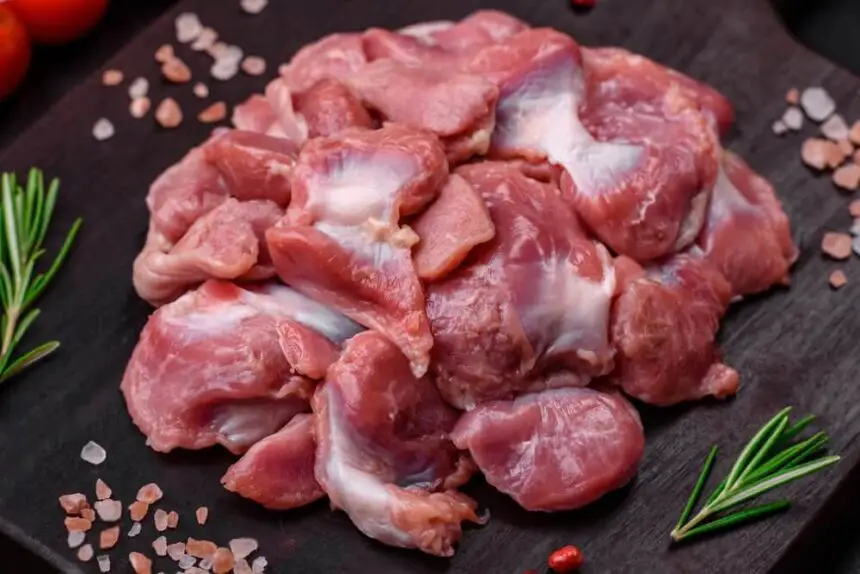Hey there, feline aficionados! If you’ve ever wondered whether it’s safe to share turkey gizzards with your furry companion, you’re in the right place. We’re here to explore the ins and outs of feline dining etiquette, from turkey gizzards to other turkey tidbits. So, can cats indulge in this culinary delight? Let’s dig into the details.
Can Cats Eat Turkey Gizzards?
In a word, yes! Turkey gizzards are on the feline-friendly menu. These organ meats often find their way into pet food, making them a suitable option for your kitty. Gizzards can be a valuable source of protein and essential nutrients, adding a dash of variety to your cat’s diet.
However, there’s a “but” – moderation is key. Gizzards come with a higher fat and cholesterol content, so overindulging may not be the best idea. Remember, being a responsible pet parent means doing your research before introducing new items into your cat’s diet.
What Turkey Parts Can Cats Eat?
Turkey can be a great addition to your cat’s diet. It’s a lean protein source, helping maintain your feline’s healthy weight. Packed with immune-boosting nutrients and energy-enhancing properties, turkey is a win-win for your kitty.
While most turkey parts are safe for cats, the turkey breast is the prime choice. It’s low in fat and calories but rich in protein. Plus, it’s a great source of niacin, which plays a role in maintaining healthy skin and fur.
Can Cats Eat Giblet?
Giblets, those edible poultry organs, usually consist of the heart, liver, and gizzard. Some pet owners may cook up these organs and add them to their pet’s meals, but truth be told, it’s not a necessity.
Cats are obligate carnivores, which means they don’t require organ meats in their diet. In fact, an excess of organ meat can have the opposite effect and be harmful due to its high vitamin A content.
If you want to treat your cat, there are many commercially available cat treats that come in a giblet flavor, minus the actual organs. It’s a safe and convenient way to keep your kitty satisfied.
Why Can’t Cats Eat Turkey?
Now, here’s where we take a little detour. While turkey is a staple of many holiday feasts, it’s not necessarily a go-to for your cat. Here’s why:
- L-Tryptophan Drowsiness: Turkey contains a compound called L-tryptophan, which can make your cat drowsy and induce sleep. While it may sound cozy, it can be problematic for your furry friend.
- Phosphorus Levels: Turkey carries high levels of phosphorus, and when consumed in large quantities, it can lead to kidney issues in cats.
- Onions and Garlic: Some turkeys are cooked with onions or garlic, both of which are toxic to cats and can lead to stomach problems.
In short, it’s best to keep that Thanksgiving turkey away from your kitty. Stick to their regular diet to ensure their well-being.
Can Cats Eat Turkey Hearts?
Absolutely! Turkey hearts can be a delightful addition to your cat’s menu. They’re a rich source of protein and are relatively low in fat. However, there’s a catch – they should be cooked before serving.
Raw turkey hearts might contain harmful bacteria, which could make your cat unwell. Safety first!
Raw Cat Food Q&A: Can You Use CHICKEN GIZZARDS Along With (Or Instead Of) HEARTS?!
Can I Give Raw Turkey Liver to My Cat?
Sure, you can feed your cat raw turkey liver, but there’s a little asterisk attached. Always check with your vet before serving up this treat. Turkey livers are packed with vitamins A and B12, along with copper, zinc, and iron. It’s a nutritional goldmine.
However, you need to ensure there are no unwelcome guests in the form of parasites. These could wreak havoc on your cat’s health. Internal parasites might cause diarrhea, weight loss, lethargy, and jaundice. External parasites can lead to skin irritation and itching.
In the presence of any parasites, it’s crucial to consult your vet before serving that liver platter to your kitty.
Conclusion
Turkey gizzards, with their rich protein content and essential nutrients, are a common ingredient in many commercial cat foods. The good news is they’re perfectly safe for your feline friends. So go ahead, treat your cat to a little gizzard delight.
Just remember, when it comes to introducing new foods into your cat’s diet, moderation is the golden rule. And always keep an eye out for any signs of digestive upset.
Feeding your cat is a labor of love, and it’s essential to ensure that every treat you offer them is a tasty and safe delight. Happy dining, kitties!


